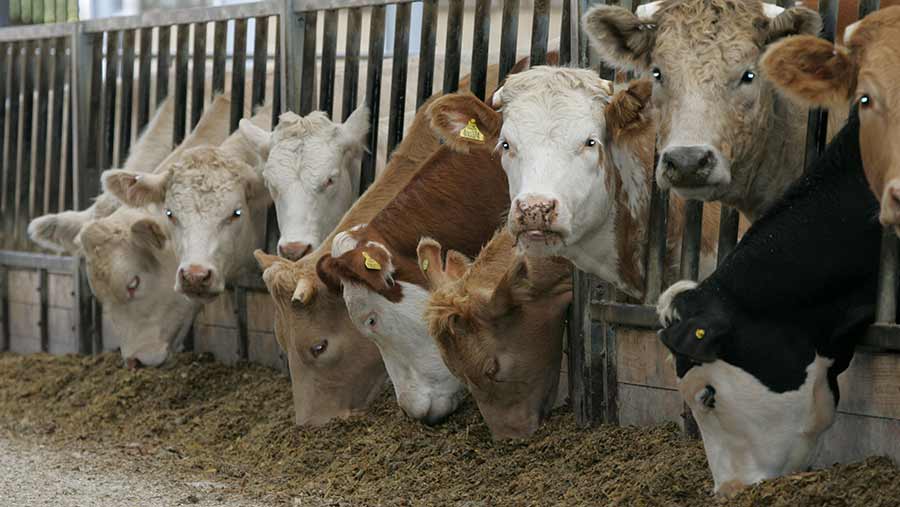Defra commits to methane suppressants to cut emissions
 © Tim Scrivener
© Tim Scrivener Feed additives that reduce methane emissions from livestock look likely to be a requirement in some cattle systems in England by 2030 after Defra pledged to mandate their use.
Farmers warn it will add cost and, with a small pool of available products, that cost is likely to be high.
According to Defra, the UK agricultural sector accounted for 10% of the total greenhouse gas emissions in 2019, with methane emissions a substantial contributor.
See also: New feed additive could help cut cow methane by 45%
Natural and synthetic products such as probiotics and those produced from seaweed and plant essential oils are being developed to help reduce this.
Defra, in conjunction with the devolved governments in Wales, Scotland and Northern Ireland, had launched a call for evidence to look at the potential opportunities and challenges associated with these products.
Evidence was provided by 213 respondents – just over half of those were farmers.
Defra said the findings would now be used to consider the role of government policy in encouraging uptake in use of products with methane-inhibiting properties, which are expected to be widely available from 2025.
Its ultimate objective is to establish a mature market, encourage uptake and “mandate the use of these products in appropriate cattle systems across England, as soon as feasibly possible and no later than 2030”, it said.
Role for genetics
NFU Dairy board chairman Michael Oakes argued that genetics can be an equally positive tool to reduce emissions.
He had recently visited a UK farm that used an additive, and that farm believed the product did work.
“My concern from what I saw was that it can potentially be quite costly and there needs to be more than one available or the manufacturer can charge what it wants,” said Mr Oakes.
More research was also needed into how beneficial additive are, he added.
